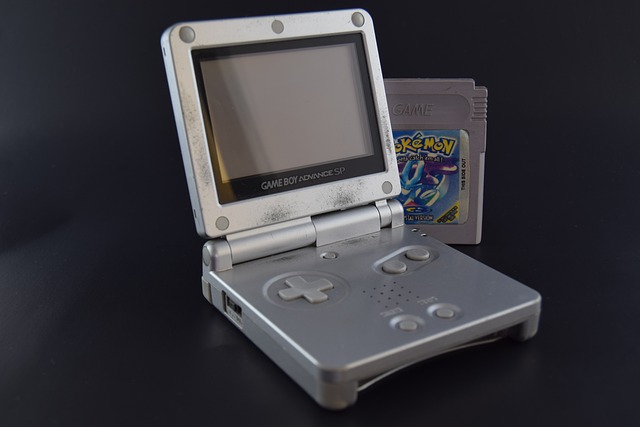TUCSON, Ariz. (AP) — When it comes to games, Ken McAllister and Judd Ruggill don’t play around.
The two University of Arizona humanities professors have spent the past two decades quietly assembling what is probably the world’s largest archive devoted to the study of video games and game culture.
The Learning Games Initiative Research Archive now contains more than a quarter of a million items, including at least 15,000 individual games, 200 game systems and thousands of documents, books, promotional materials and other artifacts from the game industry’s ever-expanding universe.
The catalog runs the gamut, from a 1948 patent for the earliest “cathode ray tube amusement device” to the latest Playstation console.
And unlike other university archives where you need “white gloves and a wand with an acid-free cotton ball at the end” to handle the relics, McAllister says everything in this collection is meant to be touched, plugged in and used.
After all, you can’t read a book without opening it, and you can’t understand a game without playing it.
“I mean, what is this?” Ruggill says, plucking a game cartridge from a random shelf. “It’s a piece of plastic and some other petrochemicals and things like that. It only becomes something when you activate it and interact with it.”
“There is no game without the player,” he says.
Ruggill is a Tucson native who used to fill his pockets with quarters and walk to the video arcade in his 1980s Foothills neighborhood.
McAllister grew up in Chicago playing Pitfall on a friend’s Atari 2600 and hand-held electronic football during his ride to school.
The two met through their mutual interest in game research and soon recognized something missing from their burgeoning corner of the media studies world.
“It occurred to us that there was a need in the field to actually make these objects accessible,” McAllister says. “We were going to academic conferences (where) people were giving lectures about games, and it would turn out that they had never played the game that they were there lecturing about.”
“That’s like, saying, ‘Hey, I’m going to talk to you about Shakespeare’s ‘Macbeth,’ but I haven’t actually read it,’” Ruggill adds.
It wasn’t laziness on the part of those lecturers. At the time, McAllister says, certain game systems and titles were almost impossible to find in working order, outside of private collections.
Today if a researcher needs to hook up and play a 1977 Telematch Panoramic Pong console from Argentina, the Learning Games Initiative can make that happen.
Or if a graduate student wants to squeeze off a few harmless shots from a 1972 Magavox Odyssey rifle, the first weapon interface ever sold for a home video game system, the archive has one already locked and loaded.
The collection prides itself on being open to all game researchers, no matter their ages or institutional affiliations.
Most requests come from university scholars and professional researchers, but Ruggill says they’ve also worked on educational projects with elementary school classes and met with clubs for senior citizens “who are interested in better understanding what their grandkids are doing.”
Roughly one fifth of the collection is housed in a few cluttered rooms on the top floor of an outdated, three-story building at the eastern edge of the UA campus.
The rest is kept in storage and in small satellite archives at partner institutions in Indiana, Illinois, Massachusetts, Utah, Virginia, Wyoming, Australia and Germany.
“Periodically, there are talks at the university level of getting a space that’s the right size for the collection and opening a museum,” McAllister says. “It never quite manages to make the top priority list.”
He and Ruggill officially launched their repository of nerddom in 1999 by combining their own personal video game collections into one fledgling library.
They admit they weren’t always taken seriously at first.
“It was a very strange experience in a way,” Ruggill says. “We had a colleague over in what was then the Department of Media Arts (who) studied pornography, and somehow that was more socially acceptable than games.”
Academic attitudes have evolved significantly since then.
According to Ruggill, the UA now offers three different game-related majors, and research opportunities in the field are nearly endless. Video games can be used to explore questions about psychology, physiology, education, geopolitics, art, business, marketing, engineering, technological advancement and cultural change.
Simply put, “There are lots and lots of reasons to have an archive,” Ruggill says.
But browsing through the collection is more than just an academic exercise. A feeling of nostalgia is almost inescapable, even for the men who assembled it.
It’s one of the most rewarding aspects of what they’ve built, Ruggill says: “seeing people be transported by the things here.”
And there’s new stuff coming in all the time — so much of it these days that it’s hard to keep up, especially with COVID restrictions on staffing.
The archive relies heavily on a team of interns, most of them UA students, to help document new arrivals, repair equipment, update the database, curate exhibits and send out items on loan to other researchers around the world.
Their assistants range in age from 11 to somewhere in their 60s. Multilingual interns are especially helpful when it comes to cataloging items with foreign titles that would otherwise be impossible to file away and find again.
At the moment, though, there are several file drawers filled with fresh artifacts waiting to be processed.
McAllister says “casual donations” account for most of the backlog. “It’s not uncommon for us to come into the archive and discover a Hefty bag full of random stuff with no attribution whatsoever. You know, maybe just (a note that says), ‘Thought you guys might want this,’” he says.
Occasionally, they get a request for an item they don’t already have, so they will seek it out from a collector or on eBay.
“We have a tiny little acquisition budget, and if it’s important enough, we’ll go ahead and acquire it. But that’s pretty unusual,” McAllister says.
They also try to keep duplicate items on hand so they can fix or replace things that wear out or get broken during use.
They aren’t terribly picky about submissions, either.
On his way to work last week, Ruggill fished a couple of Playstation games out of his neighbor’s curbside trash pile and brought them in.
“We have an indiscriminate approach to collection since we’re so interested in everything,” he says.
That much is obvious.
On one shelf is a kid-friendly Singer sewing machine that came bundled with a Gameboy, so users could type out words on the screen and have them stitched on fabric. On another shelf is a vibrating device, sold only in Japan, that could turn a popular, music-based shooting game into something more, um, stimulating.
There are boxes of floppy discs that are actually floppy and stacks of cassette tapes that unspool computer games instead of tunes.
High-end Guitar Hero controllers and Rock Band drum kits are tucked away in the sort of instrument cases you might expect to find on a real rock band’s tour bus.
One entire bookshelf is devoted to nothing but strategy guides, including a few hardbound editions that stretch on for hundreds of pages.
“That’s another fun thing about games: People needing or wanting help,” Ruggill says.
The archive also collects glossy trade advertisements aimed at arcade owners, kits designed to convert old arcade cabinets to newer titles and display cases filled with tokens, collectibles, expired game-themed food and original art, both amateur and professional.
Even some pirated stuff has wound up in the collection.
Ruggill says a filmmaker from China once visited the archive and presented them with the scuffed-up, yellow game cartridge he and his friends used to pass back and forth when they were kids. It contains knockoff versions of 21 popular Japanese games, all still playable.
Not to be outdone, McAllister reaches into a nearby file drawer and pulls out several clones of Nintendo handheld electronic games from the 1980s with Cyrillic writing on them. He says the games were reverse-engineered, then mass-produced by the former Soviet Union, which had no intellectual property agreements with Japan at the time.
Though physical items make up most of the collection, the archive also maintains a server filled with thousands of pieces of software and other digital-only relics.
McAllister and Ruggill could never hope to sample it all, but they still try to carve out some time for games when they’re not tending to their administrative duties.
In addition to managing the archive, McAllister is the associate dean of research and program innovation in the College of Humanities, while Ruggill is the founding head of the UA’s Department of Public and Applied Humanities.
Play is part of the job as far as Ruggill is concerned.
“I do try to game on a regular basis, just not at the level that I could before,” he says. “It’s really hard to talk about the medium if you don’t participate in it.”



